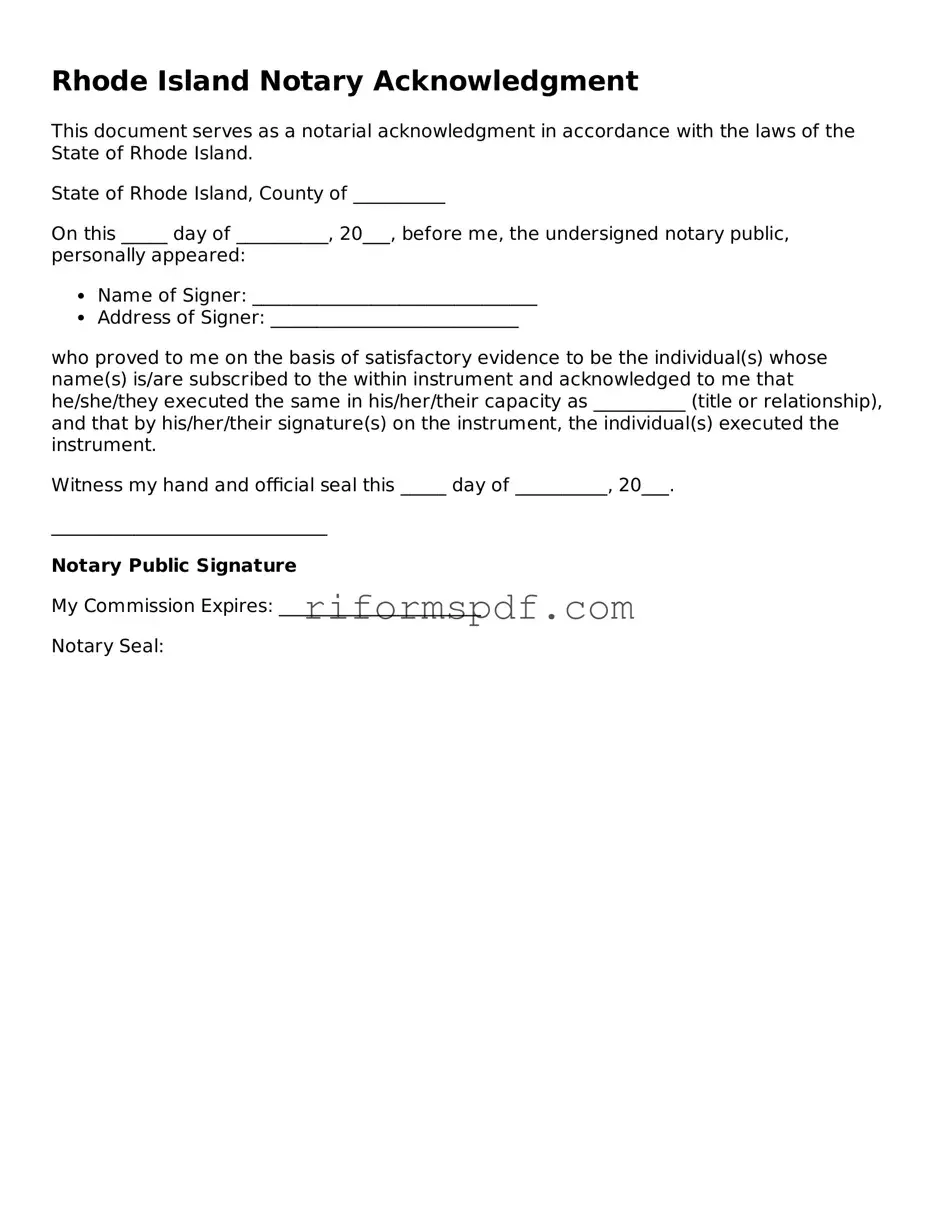Printable Notary Acknowledgement Form for Rhode Island
The Rhode Island Notary Acknowledgement form serves as a crucial document that verifies the identity of a signer and confirms their willingness to sign a particular document. This form is essential in ensuring the authenticity of signatures, providing legal protection for all parties involved. Understanding its components and purpose can help individuals navigate the notarization process more effectively.
Launch Editor

Printable Notary Acknowledgement Form for Rhode Island
Launch Editor
Finish the form now and be done
Edit Notary Acknowledgement online and skip the paperwork.
Launch Editor
or
⇓ PDF Form
